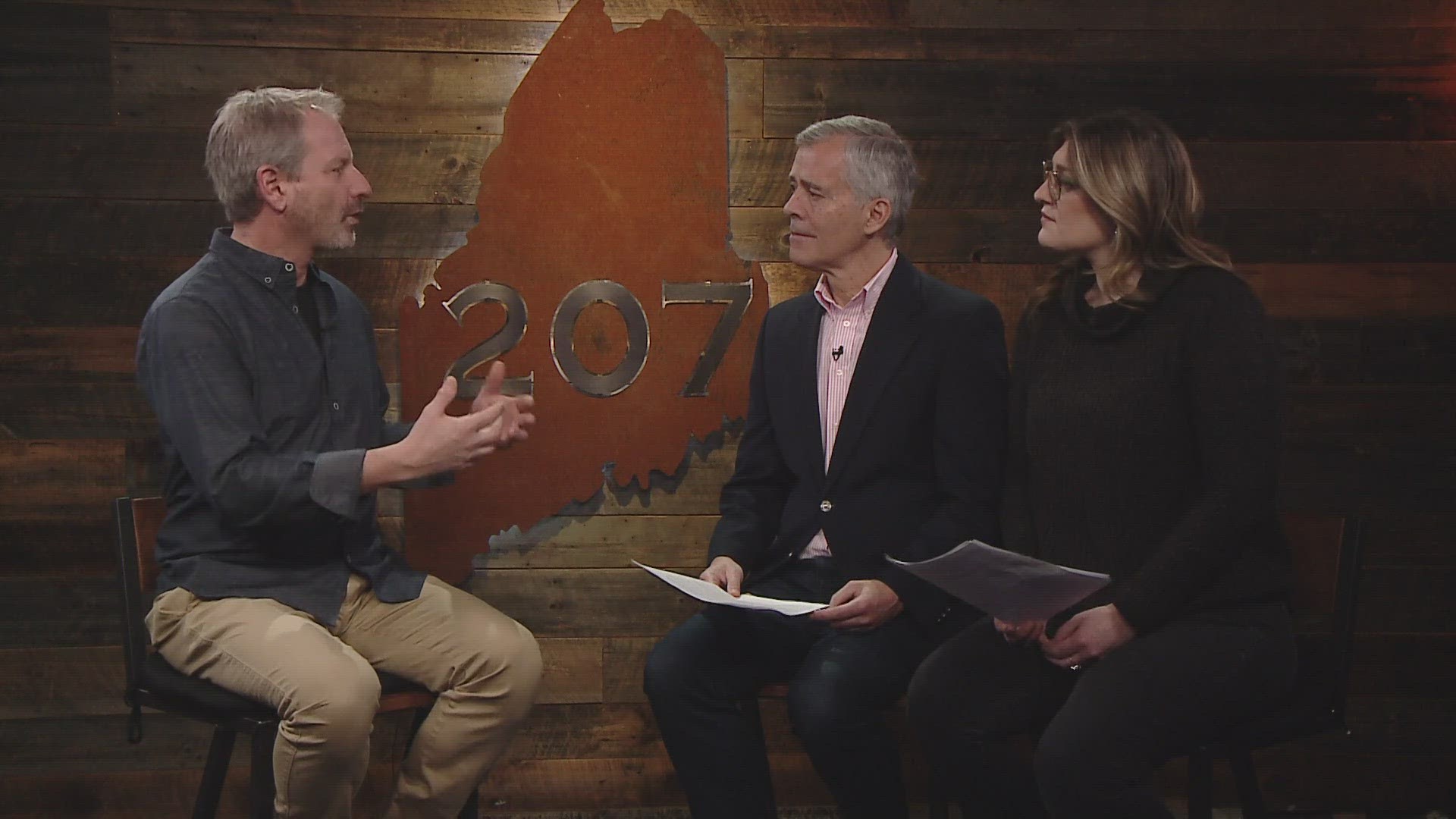PORTLAND, Maine — Rich Brooks from Flyte New Media in Portland joined us on 207 to talk about deepfakes—what they are, how they’re made, why they can be used for good or bad.
Here are the talking points he provided:
207: "Lately, deepfake videos have been surfacing, appearing on social media and through other channels. The results have been felt far and wide, impacting politics, cybersecurity, and more. But many people are still unaware of deepfakes, so let’s start with a basic definition. What is a deepfake video?"
Rich: "Deepfakes are videos created with the help of AI to superimpose the face or body of one person onto another person's body in a different video. They can be incredibly realistic, mimicking facial expressions, lip movements, even voices to create a video that shows someone saying or doing something that never actually happened."
207: "Isn't that the same thing as those face swap videos we sometimes see?"
Rich: "Conceptually yes, but on a different level. There are plenty of free and cheap face-swap video apps you can download, and they will swap one face for another. But they don't use the deep learning algorithms of deepfakes. Instead, they basically just use a simple editing feature that might swap your face with mine.
"Those are generally used for fun and entertainment only, and aren't meant to really fool anyone."
207: "There have been some international news stories recently about deepfakes. What can you tell us about them?"
Rich: "At the beginning of the month, a Hong Kong-based financial professional was swindled out of 25mil of company money when scammers created a deepfake of his CFO in a video conference call. The deepfake CFO made urgent requests for the man to make money transfers, and ultimately the man did.
"More recently, there was an upset win in Pakistan's election, with the supporters of Imran Khan taking the most open seats against the wish of the military. Khan, who has been imprisoned by the generals gave a speech to his supporters. Except that it wasn't him, it was a deepfake video.
"Now, that latter case might be considered a positive use of deepfake video, but you can see how dangerous it would be if someone created a deepfake of a political opponent where that person said or did terrible things."
207: "Are there any ethical uses of deepfakes?"
Rich: "Sure. Think about students watching a video of George Washington talking about his trip across the Delaware, and how much more engaging and memorable that might be. Or with the long wait times to see therapists these days, the ability to talk with an AI-powered deepfake who might be able to help with talk therapy.
"Deepfakes can also help in movie making, digital art, and even in missing persons cases, where someone who has been missing for years can be recreated to show how they would look now."
207: "Can the general public create deepfakes?"
Rich: "There is software online for creating deepfakes. The computing power needed is high, so they do cost money to create. Generally, you would need a video of the original person, a video that you'd like to put that person into, and it's helpful to have a lot of additional photos and videos of the subjects for an effective final product.
"I should mention that many if not all of these publicly available tools purposefully put watermarks and other tells in the video so they can't be passed off as real, to avoid ethical issues."
207: "If scammers target people with deepfakes, how can we protect ourselves?"
Rich: "It depends on how they're used. If a scammer posts a deepfake on social media--say of a rival candidate saying something horrific or off-brand--it's important for us not to immediately trust it and share it, even if we hope it's true. Whatever someone feels about mainstream media, well-known news organizations are unlikely to post deepfakes and pretend they're real. So who's posting these videos is important.
"If a scammer targets you with a video of a loved one asking for money or passwords, be cautious. I've been thinking of creating a code word or phrase and sharing it with family members. If a request comes through and they don't say "Sasquatch" or whatever, I won't believe it's real. At the very least I'd wait until I can talk to that person directly before taking action.
"There are some deepfake detection tools, and sometimes you can see inconsistencies yourself, although as the tools get better--and they will--it will be harder for a typical person to spot those."

